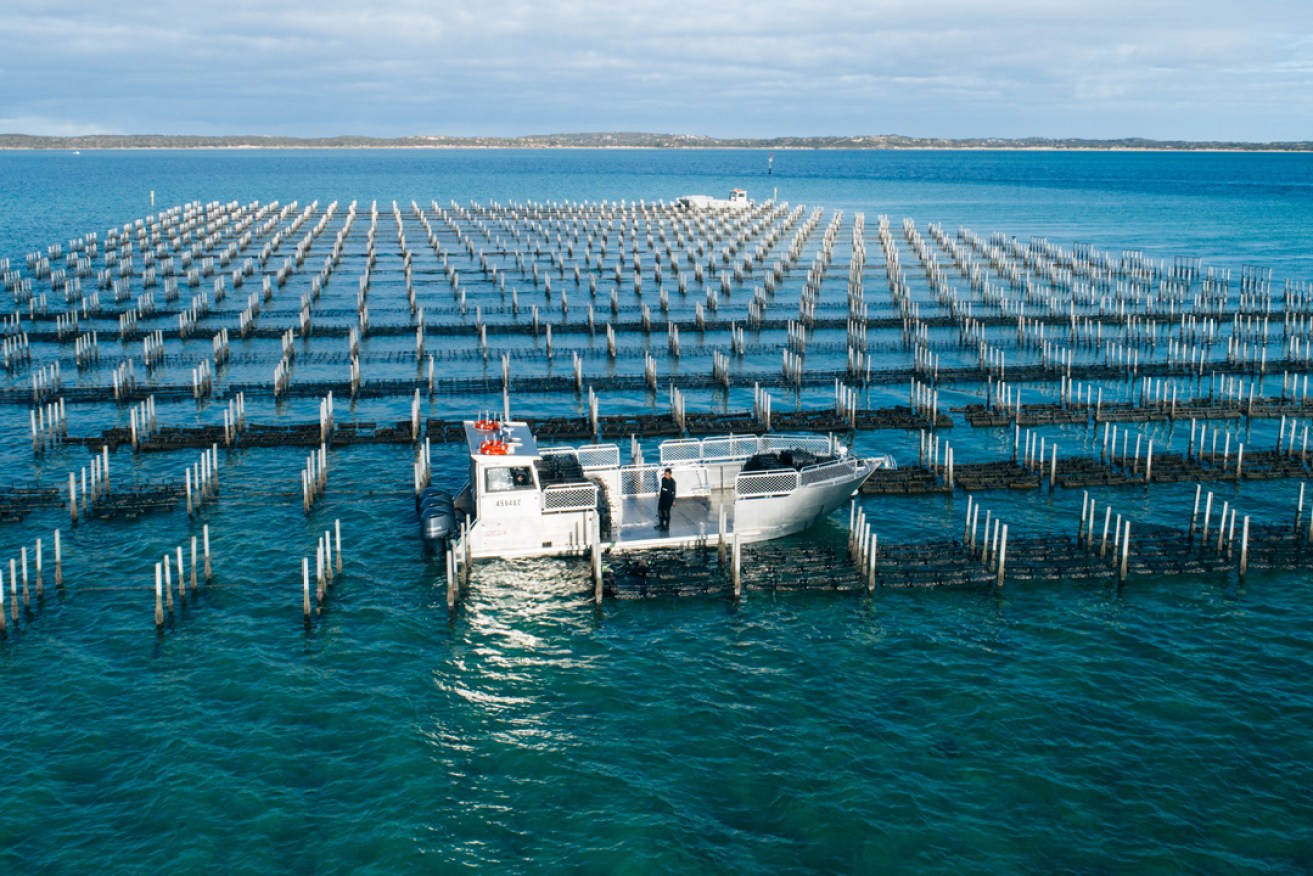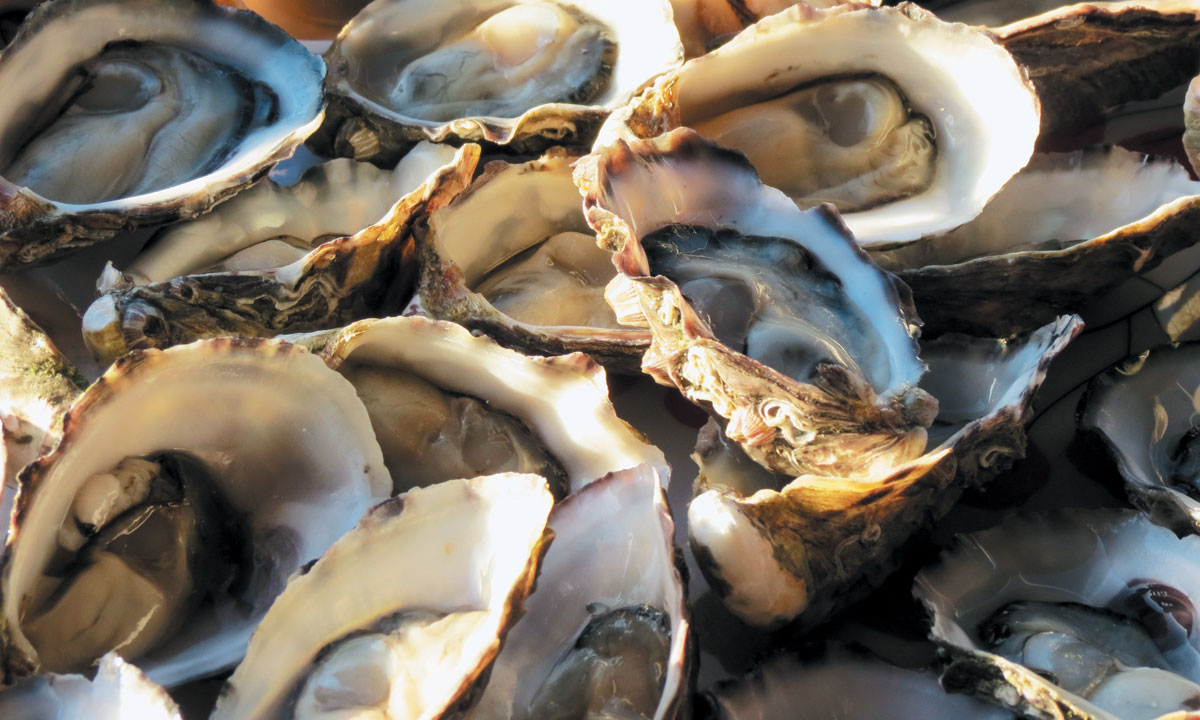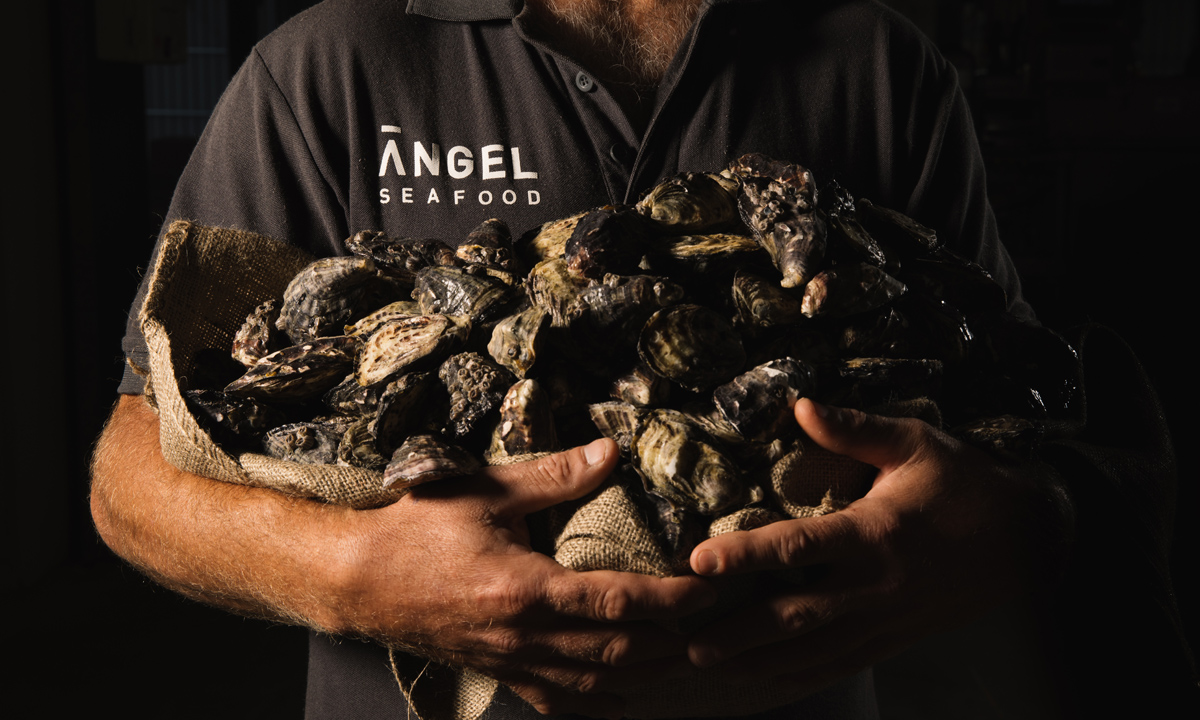Virus shutdown delivers new blow to SA oyster industry
The closure of restaurants and hotels around Australia has come as a double blow to South Australia’s oyster industry.


The industry was just beginning to get back on its feet in March and was ramping up supply following two years of shortages.
But now farms that were drastically understocked in 2017 and 2018 are being forced to sit on healthy amounts of unsold oysters as demand plummets.
In February 2016 the local oyster industry was affected by a severe supply shortage due to a POMS outbreak in Tasmania, where South Australian growers traditionally sourced 80 per cent of oyster seed or ‘spat’.
In line with South Australia’s strict biosecurity laws, there was a ban on South Australian growers importing Pacific Oyster spat from Tasmania in a bid to stop the disease spreading to the state’s growing regions on the Eyre and Yorke peninsulas and Kangaroo Island.
However, due to grow out times of between 18 months and two years on most SA oyster leases, the full impact of the shortages did not hit the farm gate until late 2017.
“We’ve gone from very low supply and high demand to the opposite situation where we’ve got good supply and low demand,” South Australian Oyster Growers Association Chairman Rob Kerin said.
“The shutdown has come at a bad time and even in the weeks leading up to the shutdown there were less and less people eating out and then when the closure came that really spelt big problems.
“If we had this situation 12 months ago, because of the reduced supplies we had, demand might not have been all that much behind supply whereas this year we are back to good levels of supply but we can’t sell them.”

Coffin Bay oysters on the Eyre Peninsula. Photo: Lee Atkinson
Kerin said PIRSA had allowed oyster farms to increase their capacity through the introduction of measures such as double hanging of baskets, but many farms were “chocker block”, which in turn led to the hatcheries being overstocked.
He said trying to get farmers to diversify their sales bases so they were less reliant on restaurants had been a plan, but the lack of supply in recent years had limited their ability to look for new avenues to market.
“Now all of a sudden with hotels and restaurants closed we’re trying hard into that moment but we are not as established in those markets as much as we would have liked to,” her said.
BDO EconSearch compiles data for South Australia’s Fisheries and Aquaculture division and last year forecast that oyster volumes would begin to recover this financial year and be at almost full production of more than four million dozen again by mid-2021.
Colleen and Jeff Holmes have run SA Premium Oysters at Smoky Bay south of Ceduna since 1989.
After some lean years due to limited spat allocation, their stocks of mature oysters were beginning to improve just as the COVID-19 shut down the restaurant industry.
SA Premium Oysters has been supplying the majority of its oysters to Western Australia in air freight shipments twice a week for about five years. Their oysters are served in 17 of Perth’s top restaurants and supplied to Perth’s “King of Oysters” Jerry Fraser for use at shucking events.
The business also built a platform overlooking its oyster lease last year and began running tours and tastings in September, which has already grown to become an important income source for the business.
However, the tours have stopped and the sales to WA have all but ceased in the past six weeks.
Colleen said their spat supplier had offered to provide next year’s seed early on a ‘pay later basis which had helped both parties.
She said despite the tough times she was confident the Perth relationship would get back to normal when restaurants re-opened and the oyster farm tours and sales started up again.
“We did 100 dozen to them last week and the week before, so that’s a start,” she said.
“We’ve gone from wholesalers to providing a personalised product – they sell our story over there so rather than just selling a dozen oysters they sell Jeff and Colleen’s oysters from Smoky Bay.
“Once the COVID restrictions are lifted, everyone’s going to want to go out, the travellers are going to start travelling again and you’re going to have all of those tourists calling into the shed door and all those people who had functions at home and would get a bag of oysters and have parties will all start doing that again so that will start up too.
“Farmers are pretty tough and we’re doing a job we love. Things get tight but at the end of the day it’s farming and we’re pretty resilient and our work space is pretty spectacular.”
ASX-listed Angel Seafood last week announced record March quarter sales despite reduced demand in the final weeks as a result of COVID-19.

Picture: Robert Lang
The company sold 1.1 million oysters in the three months to the end of March – up 304 per cent on the same period last year – bringing its financial year-to-date sales to 4.4 million.
The company attributed the increase in sales to an improved stock profile and an earlier recommencement of sales than usual following the spawning season.
Angel Seafood CEO Zac Halman said he was pleased with the sales result, particularly as it was impacted by a slowdown in sales towards the end of March when restaurants were forced to close.
“Thanks to a stronger stock profile and our team’s hard work we managed to sell three times more oysters than over the same period last year,” he said.
“We were also fortunate to experience excellent growing conditions throughout the quarter, resulting in our stock profile further improving towards larger oyster sizes.”
Angel Seafood is the largest sustainable and organically certified producer of Pacific oysters in the Southern Hemisphere and one of the state’s largest producers.
Its head office is in Port Lincoln and currently holds 24 million oysters in stock across its leases in Coffin Bay, Cowell and Haslam, where it has begun using an overflow facility.
In its statement the company said it use the COVID-19 slowdown to further improve its stock profile by growing larger quantities of oysters to a larger size, which attract higher average sale prices.
It expects to recommence oyster exports in the June quarter as access to international markets re-open and reported an increase in export inquiries.
“The company is currently exploring opportunities to export into several countries in Asia and the Middle East, whilst also selling to existing customers in Hong Kong,” this morning’s announcement said.
“Angel is working closely with the South Australian and the Federal Governments to access the ‘International Freight Assistance Mechanism’ initiative which helps exporters of high-value products, including seafood, air freight into key overseas markets.
“This initiative will operate until ordinary commercial markets return, or for six months, whichever is the earlier. This is expected to see Angel through to the peak domestic season.”
Like many companies, Angel Seafood last month withdrew its full year sales guidance for the 2020 financial year.
It has also deferred planned expansionary capital expenditures, reduced staff hours and negotiated with NAB to increase cash inflows and working capital by a total of $1.5 million.
Halman said the reduction in consumer demand was expected to continue until social distancing rules are lifted and eateries cab re-open.
“The past couple of months have certainly been unprecedented in terms of the impact to our daily lives,” he said.
“Pleasingly, Angel has held up well, with our team staying healthy and continuing to grow our business.
“I am confident that with the responses we have put in place to navigate the short-term impacts, we will come through this challenging period in a much stronger position that will enable the continued growth of Angel.”
Want to comment?
Send us an email, making it clear which story you’re commenting on and including your full name (required for publication) and phone number (only for verification purposes). Please put “Reader views” in the subject.
We’ll publish the best comments in a regular “Reader Views” post. Your comments can be brief, or we can accept up to 350 words, or thereabouts.




